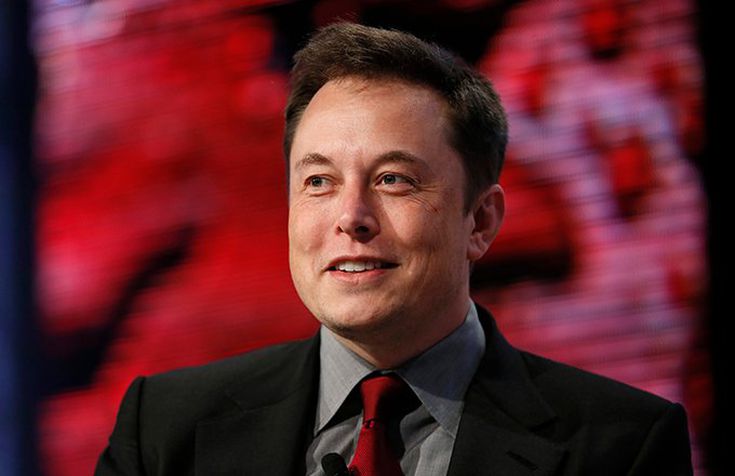Elon Musk has made a name for himself as a data-savvy innovator, and he’s seeking to further that label with an ambitious goal: scaling up and expanding Tesla’s car insurance product across the US.
Industry analysts say that Tesla might have an advantage in building out its own car insurance company as a result of one of the exact tools that Musk loves: data.
In July, Musk said that Tesla is “creating a major insurance company” that would utilize vehicle data in order to determine insurance rates for drivers on the basis of how aggressively — or safely — they drive on the road.
“Tesla has the car data and driver profile, which it can use to underwrite its insurance product,” Robert Le, an analyst at PitchBook Mobility, told Business Insider. “Telematics is going to be an important driver of enhanced underwriting in this space as all of the major insurers now have Telematics products.”
Additionally, Le said that Tesla is at an advantage because it has “full access data” to the entire features of its vehicles, such as battery level, autopilot, and broken car lights. Simply put, Tesla doesn’t need to allow other insurance providers to access its data, and it already has access to system level data for its entire vehicle fleet. These are all examples of data that could be useful in the company predicting driving risks down the road and help Tesla to set better prices for its car insurance, Le said. In comparison, some insurance, like Smartcar, allows OEMs and insurers alike to collaborate as a means to access a vehicle’s sensors and data. Geico previously launched its own Telematics car insurance too, Le pointed out. “We believe Tesla’s venture into insurance is part of a larger trend towards leveraging advanced data to enable insurers to build better risk models, thereby lowering both premiums and loss ratios,” Asad Hussain, an analyst at PitchBook Mobility, told Business Insider. “Data is increasingly a focal point for insurers as it enables rate adjustment based on behavioral metrics such as driver phone use and propensity for heavy braking.” Though Tesla’s plan for its car insurance seems to possess many upsides, it’s currently a product limited to California. Elon Musk has indicated the company eventually plans to expand to other states, but that’s where things get tricky. Right now, Le told Business insider that Tesla isn’t facing too many regulatory challenges, but that could change. “Tesla is essentially an insurance broker for State National Insurance Company,” Le said. “Since Tesla is starting only in California, it could be a clue that Tesla may want to one day become a carrier itself. The challenges there would be to get a license to operate in each state, a highly onerous process.” The California rollout could have gone smoother. Tesla had to pause the sales of its basic insurance in August 2019 because of a cited “algorithm update” after only a few hours into launching the product. Tesla pitches that it offers “up to 20% lower rates,” but commenters online at the time reported that they’d been offered rates higher than expected. The website is now functioning again for potential consumers to look at if needed. The road to Tesla Insurance Version 2 Musk appears to be optimistic about the future of Tesla’s car insurance, which he dubbed as “version 2” during July’s earnings call.
“We’re building a great — like a major insurance company,” Musk said to investors on an earnings call in July. “Ultimately, where we want to get to with Tesla Insurance is to be able to use the data that’s captured in the car, in the driving profile of the person in the car, to be able to assess correlations and probabilities of crash and be able then to assess a premium on a monthly basis for that customer.”
And Musk isn’t alone on his thoughts regarding the product’s outlook given the fact that car owners are seeking resilient plans that can be trusted.
“We believe Tesla is well positioned to leverage its unique OTA capabilities and fleet-wide interior and exterior camera network to build comprehensive risk models and accurately adjust claims,” Hussain said. “Additionally, we believe Tesla moving into insurance is a proactive move because consumers are increasingly drawn to flexible vehicle ownership models.”
The ongoing wave of company developments has positioned Tesla in a good spot financially.
Recently, Musk sent an email to employees laying out one of his upcoming ambitious goals, which is to build a total of 500,000 vehicles in 2020. Musk envisions that Tesla will increase its fourth quarter production by 17% compared to the third quarter to reach that goal. The US-based electric vehicle company would need to produce 170,000 more cars to satisfy Musk after Tesla beat analyst expectations for third-quarter deliveries.
When Tesla topped Wall Street expectations in the second quarter of this year, that was its fourth consecutive quarter of profit and a company record. A month later, Tesla passed Visa on August 31 to become the seventh-largest US company in terms of market capitalization. This milestone came on Tesla’s inaugural day of post-split-trading.
On Wednesday, ahead of its third-quarter earnings report after the market closes, Tesla is currently the ninth-largest company by market capitalization, according to Bloomberg data.
The company’s earnings call, scheduled for Wednesday afternoon, could reveal more information on Tesla’s ambitions and road map for Tesla Insurance Version 2, as investors and analysts will have the chance to hear directly from Musk himself.
Source: Business Insider
Share on linkedin
LinkedIn
Share on twitter
Twitter
Share on facebook
Facebook









